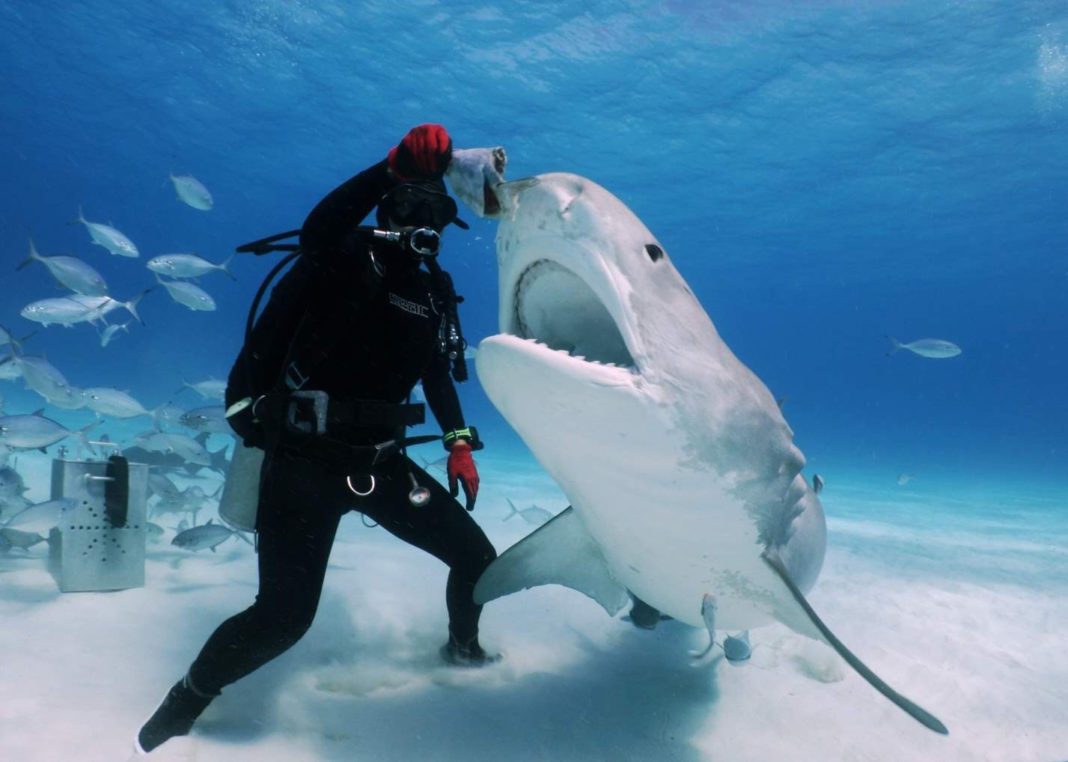
By Alex Jones
INCREDIBLE photos show a courageous shark feeder getting up close and personal with the deadly apex predators – despite being BITTEN by one last year.
Remarkable shots show a shark specialist interacting with an array of the phenomenal fish – including imposing tiger sharks, hammerheads, bull sharks, lemon sharks, and nurse sharks – by stroking their underbellies, holding bait just inches from their razor-sharp teeth, and gracefully directing sharks with a gentle touch and an assured nature.
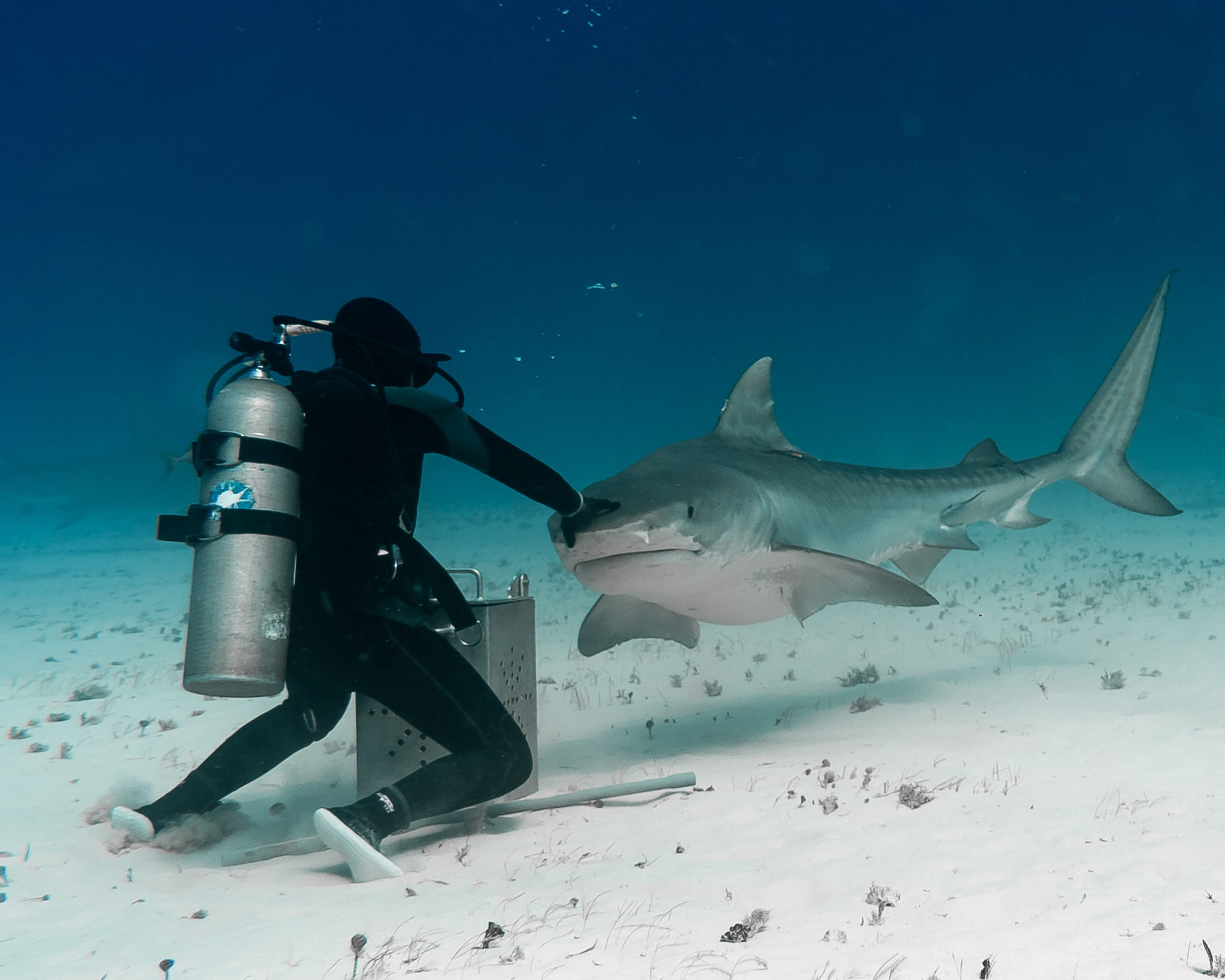
But Roberta Larosa (31) who lives and works in Bimini, The Bahamas, as a scuba diving guide and marine biologist, knows full well that whilst sharks are intelligent, highly evolved creatures, they can have a wild side.
“It was last year when I was bitten,” said the Italian.
“It was a big shark, one of my favourites, and it was just down to instinct. I was stroking the belly of the shark swimming above me and I still had some bait in my other hand. She has the sweetest, most gentle nature but she still bit the hand where I was holding the bait.
“It’s very, very rare but it does happen, no matter what other divers may tell you. There was blood but it’s not like in the movies when there were suddenly hundreds of sharks baying for blood, I just swapped places with one of the other diving guides and went back to be treated. There was no lasting damage. Humans are not prey for sharks, we don’t need to be scared of them, just respectful.
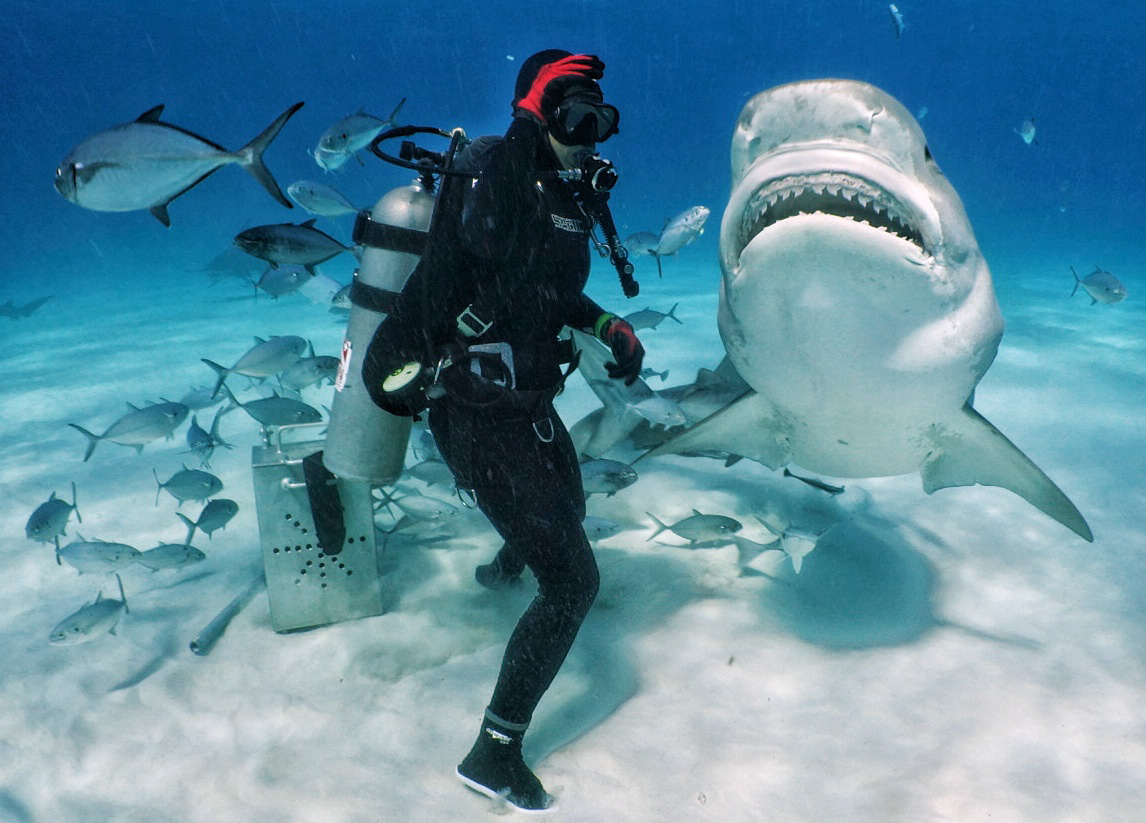
“I have studied and swam with sharks for years. It was only after I came to work for Neal Watson’s Bimini Scuba Center that I started feeding them. You have to be calm, be focussed, and predict how the sharks will react but I’ve been doing it for three years now.
“I can honestly say that I am not scared when I am in the water with tiger sharks or hammerheads, you just have to understand how they think. The problems start when guests or other divers start acting inappropriately as that can scare the animals. Certain sharks, like tigers, are programmed to just bite when they sense food too so you must be careful – but no, it’s not so scary if you understand.”
Sharking diving and ecotourism are big business for the Caribbean Islands, bringing in approximately £100m a year to the region. Although there are some question marks over shark feeding, Roberta believes that the industry does far more good than harm.
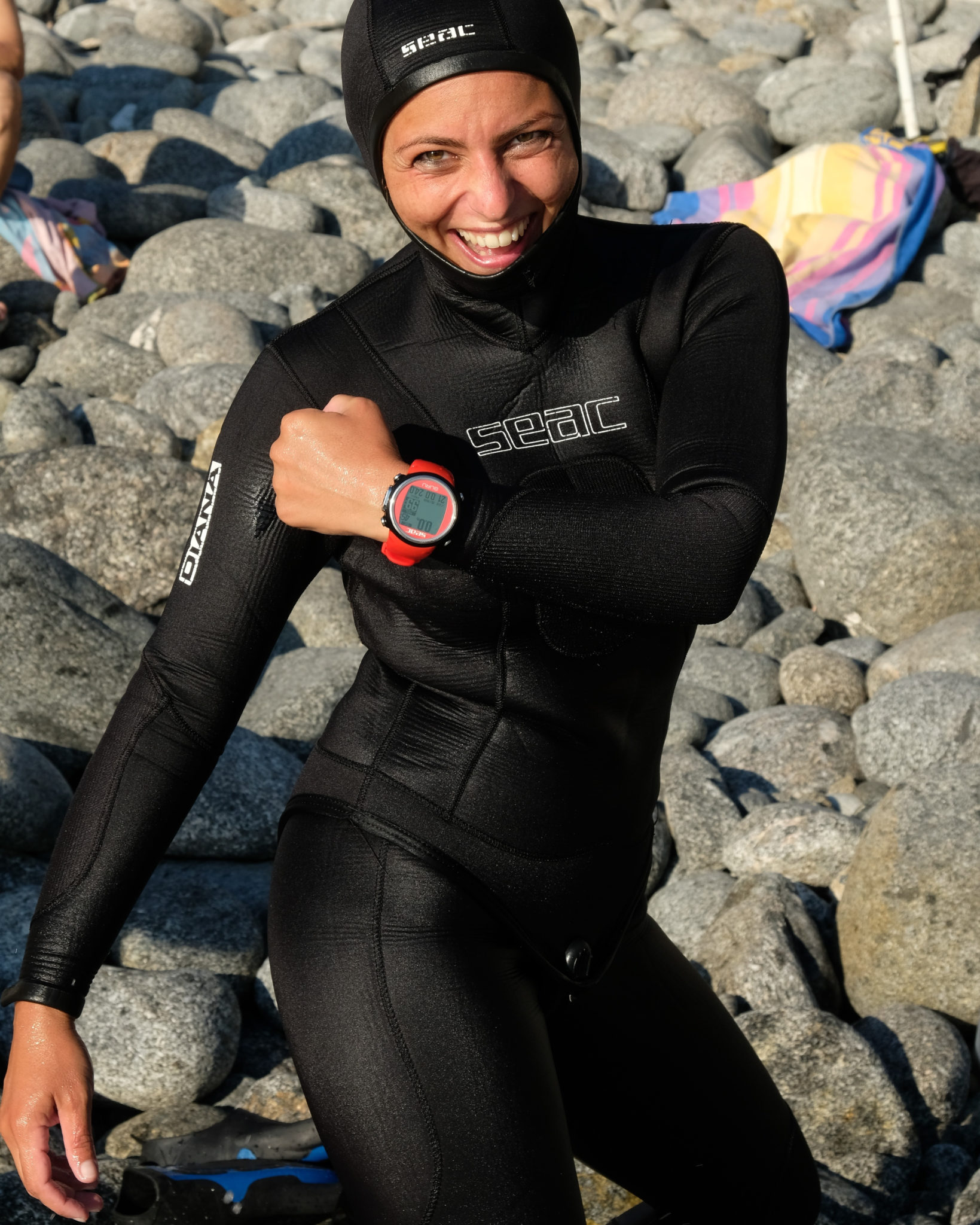
“Thanks to our efforts, and other eco-tourist organisations in the region, it is now illegal to kill sharks,” explained Roberta, who has dived in various locations across the world including Mexico, Micronesia, Egypt, and Sri Lanka.
“The Government realises that sharks are more valuable alive than dead. We also have a PHD student with us who is looking at the effect of feeding sharks and whether it changes their behaviour. We are trying to move away from it but overall the industry is good for the sharks and the area.
“I had one Chinese group who have now sworn to never try shark fin soup again after going on one of our tours, it is making a difference as so many sharks are killed every year for that pointless, tasteless soup.”
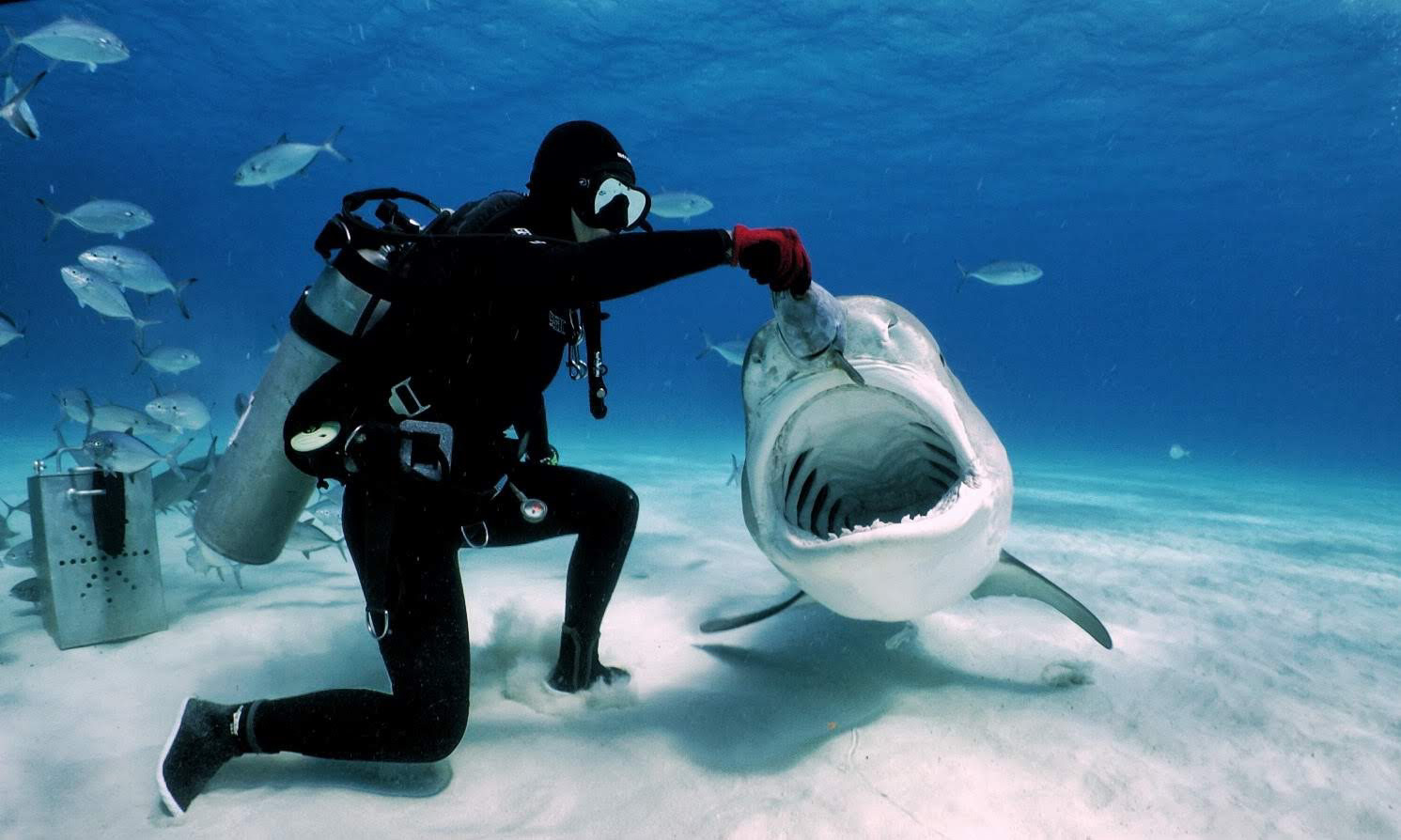
For Roberta, who left a job as a scientist in order to follow her underwater dreams, her career is special.
“I love my job, I fell in love with sharks the first time I encountered one,” said Roberta, who uses the Instagram handle underwatersharkplanet.
“It’s an exciting job and I get to share that love with people from all over the world. It’s important too, I’ve seen the effects of coral depletion and shark hunting first-hand and we need to make big changes. We need to protect our animals and our ocean, and we need to make the right changes immediately.”






